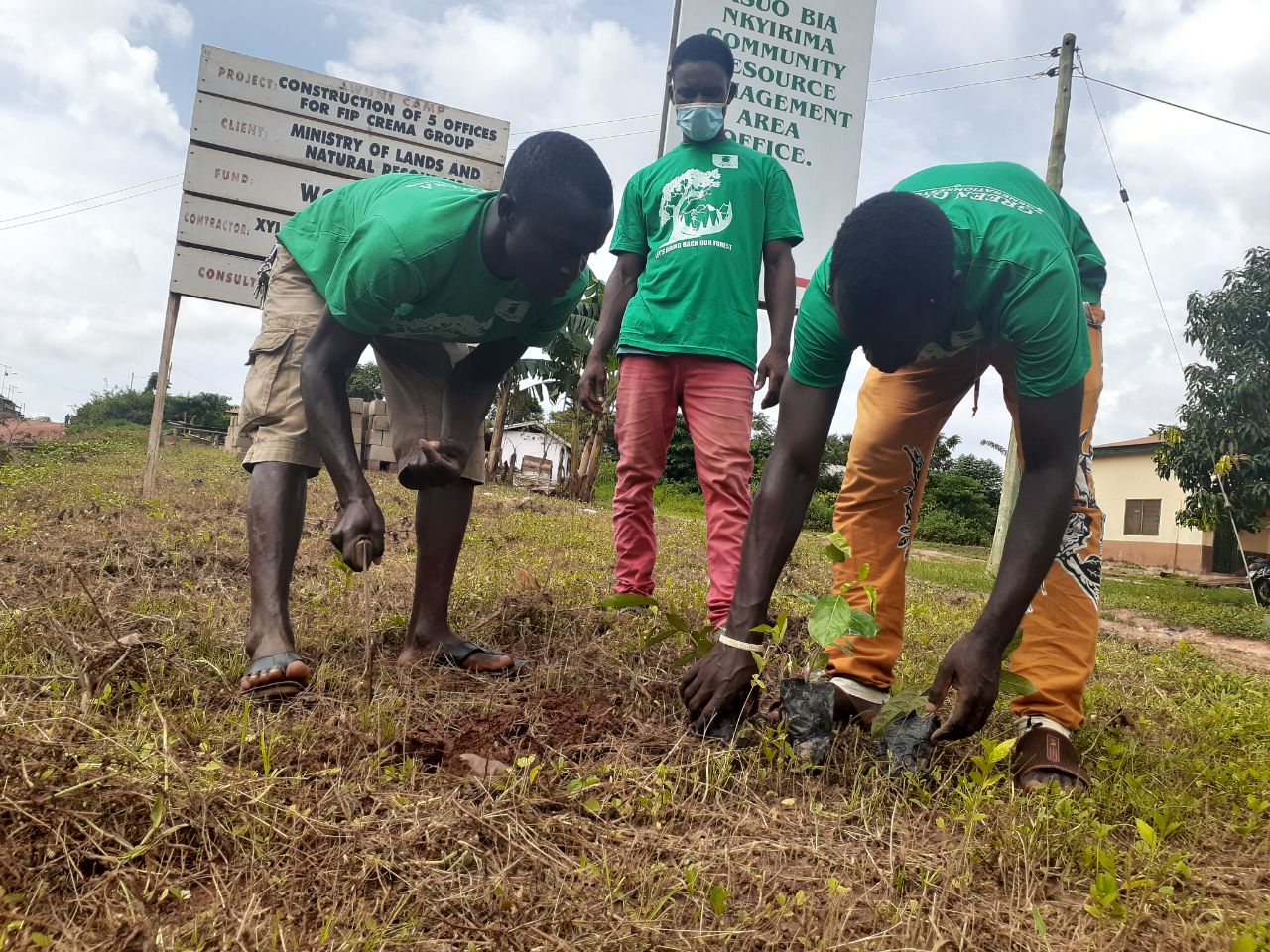Natural Resource Management
Natural Resource Management (NRM) considers the sustainable use and conservation of resources such as land, water, soil, plants, and animals. The goal is to balance human needs with environmental conservation, ensuring the well-being of both present and future generations. The Conservation Alliance approaches NRM with a focus on people, integrating the conservation of natural resources such as water, soil, and local biodiversity with development initiatives. The objective is to improve living conditions and food security while ensuring the sustainable utilization of natural resources. This entails promoting practices that preserve soil fertility, prevent deforestation, and safeguard biodiversity. CA collaborates with communities to mitigate the impacts of extractive industries and adapt to the effects of climate change, such as droughts, floods, and shifting weather patterns. This involves advocating for climate-smart agriculture and resilient farming methods. CA’s NRM strategy prioritizes local involvement and decision-making, with communities actively participating in planning, executing, and monitoring resource management efforts to ensure communities live in harmony in nature. Our projects under the NRM program covers climate change, REDD+, Business & Biodiversity Offset among others.
Projects undertaken under NRM include the following
- Facilitation of creation of Community Resource Management Areas (CREMAs) in Ghana.
- Restoration of species habitats and ecosystems within the Bia and Kakum Conservation Areas of Ghana.
- Biodiversity data management, analysis and information product development for integration into policy decision making process.
- Promotion climate change adaption and mitigation through nature-based solutions.
- Supports extractive companies to incorporate biodiversity and sustainability issues such as offsets into their operations.
- Facilitated the development of a biodiversity sustainability framework for developers in the coastal areas.
Agriculture and Rural Development
Agriculture and Rural Development seeks to enhance the holistic welfare of agrarian communities, covering every stage of production—from planting and cultivation to harvesting and subsequent sales. Conservation Alliance views Agriculture and Rural Development as a multifaceted approach to enhancing the well-being of rural populations, bolstering food security, and advocating for sustainable agricultural methods within rural communities. Within this framework, CA actively promotes beneficial agricultural practices among small-scale farmers to boost productivity and broaden market access. CA’s overarching goal in Agriculture and Rural Development includes facilitating rural entrepreneurs’ access to credit, microfinance options, and savings groups, alongside connecting farmers with fair market opportunities for their produce. Additionally, CA engages in partnerships with local farmer groups to reinforce community involvement in decision-making processes.
- Promotion of regenerative agriculture including cocoa agroforestry within the agricultural production landscapes.
- Promotion of organic cultivation practices, integrated pest management and use of organic pesticides in agriculture production
- CA has developed adaptation strategies for smallholder farmers and fisherfolks in Ghana, linked to issues of production, water management policy, and the environment.
- CA develops roadmaps for supporting coastal communities affected by extractive companies to date. Supported by the local government, Fisheries Commission, the EPA and the private sector
- Conservation Alliance promotes forest and tree management practices by cocoa farmers through the Community Resource Management Areas (CREMAs) initiative.
Environment & Natural Resource Management
Natural resource management issues have attracted increasing attention in recent decades, particularly in Africa, partly in response to a sequence of crises in energy, food, water, and other resources. As a result of population growth and climate change, pressures on scarce natural resources are mounting. As water demand grows for household, industrial, and agricultural uses, the functioning and quality of watersheds and irrigated land are deteriorating. Desertification, deforestation, overgrazing, salinization, and soil erosion are increasing as well, especially in developing countries. As a result, precious natural resources—from fertile soil to freshwater streams—are rapidly diminishing, with devastating impacts on the poor, who rely on these resources to generate most of their income and subsistence goods.


Effective governance and management of resources have always been important, but have become increasingly challenging in the face of changing climate, livelihoods, and market pressures. Many African countries have compromised their natural resource base for the sake of development, and are consequently facing various environmental challenges. The pressure on natural resources has potentially been aggravated by the development of infrastructure, advancement in extraction techniques, and expanding product markets that enlarge extraction opportunities for concession holders as well as local populations. Under such circumstances, the quality of land, water, and forest is threatened, and the regenerating capacity of resources is hardly guaranteed. These are evidenced in rural areas where most of these natural resources are located.
CA’s programs and projects under Environment & Natural Resources are aimed at land management, quality water, afforestation, water resource allocation, supports poverty reduction and food security through more productive, equitable, and sustainable use of resources in developing countries.